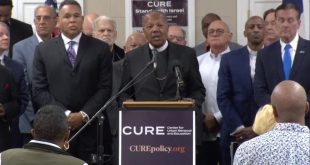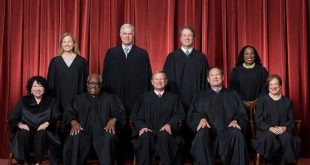 W. Bradford Wilcox, director of the National Marriage Project at the University of Virginia, is best known for his research on marriage and the family. In an article for the American Enterprise Institute, he and Nicholas H. Wolfinger fact-checked the alarmists on the state of black men in America.
W. Bradford Wilcox, director of the National Marriage Project at the University of Virginia, is best known for his research on marriage and the family. In an article for the American Enterprise Institute, he and Nicholas H. Wolfinger fact-checked the alarmists on the state of black men in America.
They’re doing “just fine.” Most black men aren’t poor or jobless. Most won’t be locked up, and most will marry. An excerpt:
“Why haven’t I heard this before?” asked Stephan Moore, a 49-year-old African-American father from Oklahoma City, after hearing one of us lecture this month. “I’m so glad I brought my teenage son. He hasn’t heard this message about black men.”
Moore’s surprise is understandable. In the wake of Trayvon Martin, Ferguson, and Baltimore, the national conversation about black men has tended to focus on the bad news about black men. In launching My Brother’s Keeper, his initiative to help black and Latino men in the wake of the Trayvon Martin verdict, President Obama outlined the challenges confronting minority men: They face a “higher chance [of ending] up in the criminal-justice system, and a far higher chance [of becoming] the victim of a violent crime. Fewer young black and Latino men participate in the labor force compared to young white men. And all of this translates into higher unemployment rates and poverty rates as adults.”
The president is not wrong, as minority men are doing relatively worse than white men. But framing the issue this way can blind us to another reality: Most black men in America are doing just fine, as we noted recently in The Atlantic. As Stephan Moore shows us, the good news has fallen by the wayside in the recent conversation about black men.
Why are most black men doing all right? Religion plays a role, wrote Wilcox and Wolfinger. Specifically, “active engagement” in religious life. Black men attend church at above-average rates. These churchgoing men tend to avoid the kind of life that leads to crime and strive toward “hard work, honesty, temperance, consideration of others, and other mainstream values.”
Faith covers a multitude of pathologies. Being around other Christians, and building a Christ-centered life, helps individuals faced with sometimes daunting odds of success to focus on the positives. All of us struggle to avoid temptation, and having the support of a faith-based community reinforces the commitment to grow in the faith and teach these values to the next generation.
Wilcox and Wolfinger wrote a similar article for The Atlantic.
“[R]egular religious practice helps make black men more marriageable—a term social scientists use to explain why some men are more likely to get married than others. Generally, employed men are more marriageable. African American men who attend church regularly are eight percentage points more likely to get married than their peers who rarely or never attend church. Why is this noteworthy? Social science has produced considerable evidence on the benefits of marriage. Compared to their single contemporaries, married African American men have more money and are happier and healthier.”
 CURE News and Clergy Blog News and Commentary for Christians
CURE News and Clergy Blog News and Commentary for Christians



